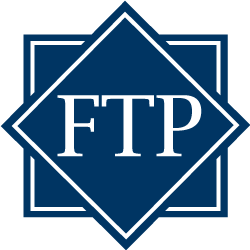While the EU has already taken massive steps, the journey is just beginning

Digital giants Google, Apple and Facebook all have at least one thing in common: they house their European operations in Ireland. This decision, driven by Ireland’s low corporate tax rates, has led to much contention and discussion among EU leaders.
European Commissioner for Competition Margrethe Vestager and Irish Finance Minister Paschal Donohoe have continued discussions on how to level the playing field among EU countries. In 2018, Ireland’s corporate tax rate was 12.5 percent, significantly lower than the EU average rate of nearly 23 percent.
The Commissioner for Competition leverages “competition policy tools” to create new jobs and spur growth, while monitoring market competition issues, including those related to taxing digital. The Commissioner enforces topics liked to mergers, cartels, antitrust and state aid. Vestager’s role, increasingly in the spotlight, wields enormous, concrete power. In 2001, then Commisioner Mario Monti declared that if GE and Honeywell merged as intended they would impair fair aerospace competition so significantly that the EU could no longer welcome them. That EU decision effectively prevented a massive merger between two US entities.
Vestager has already taken actions in the arena of taxing digital, demanding Apple Inc. pay Ireland billions of euros in back taxes. Her support also extends to the French effort to establish an approach to taxing digital EU-wide. Ireland holds the position that the only blanket tax rates worth adopting are global ones — fearing that a solely EU tax rule would drive businesses out of Europe. The US government shares the hope that the digital services tax minimum will be dropped, claiming that it will significantly hurt the country’s technology companies.
Though Europe’s biggest target has been Apple Inc., who is appealing the demand for a payment of €13 billion in back taxes, Vestager also conducted a multipart probe into Google’s operations, resulting in a fine of €1.5 billion.
As digital services grow across all industries, so will the impact of such decisions, around the world and in Luxembourg. The discussion continues, and we will keep monitoring it.
Tax Spats & Standoffs
UK taxes, Boeing & US-EU relations
With almost comical timing given Brexit’s delay, the EU is wielding its influence while it can with the ruling that the UK provided unfair tax conditions to multinational organizations. Vestager stated that under EU rules these exemptions were illegal. Though the UK has already modified the exemption to be compliant, they still must now recuperate what is owed.
In the airline industry, the EU has reacted to what it sees as unfair US government financial support of Boeing, which could hurt Europe’s Airbus business. The US-Europe tax spat begun with the US taxation of European steel and aluminum imports, to which the EU responded by taxing US steel, agriculture and additional products.
Over most of the past year, the two sides have pursued paths to reducing the mutual taxations, but the recent Boeing situation could dampen those efforts. In this messy back-and-forth, the US announced €11 billion in taxes on EU traded goods in reaction to EU Airbus subsidies it says hurt Boeing. The EU is asking for permission to tax the US on up to €12 billion worth of goods, but is awaiting feedback from businesses and stakeholders and permission from the World Trade Organization.
Share your goals with us & ask how we can help you get there. Questions about trends, regulations & requirements or anything related to taxing digital? Curious about Luxembourg? Fiduciary Tucci & Partners can help answer your queries & find solutions.
